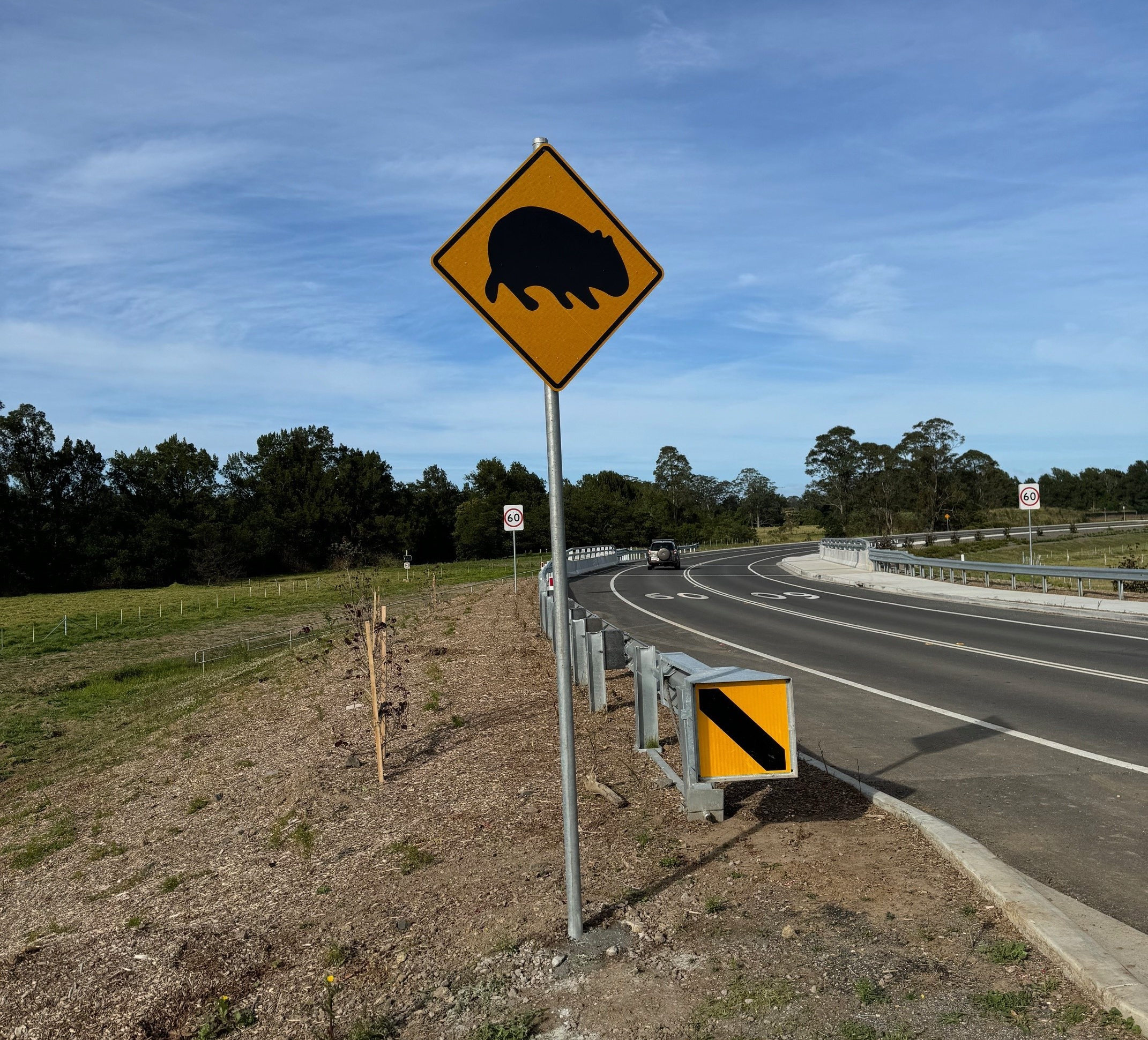Council works to protect wildlife on local roads
Published on 22 October 2024

Council is calling on the community to be aware and drive safely to protect wildlife on one of its newest roads, Bannada Way, in North Nowra.
New wildlife awareness signs have been installed along the new arterial route linking North Nowra at Illaroo Road and Moss Vale Road at Cambewarra, after several wombats were reportedly struck by vehicles following its opening in August.
“We are disappointed by the reported deaths of wildlife on our roads and work hard to protect native animals in and around our urban areas,” said Manager Environmental Services, Dr Michael Roberts.
“When new roads open, it can take some time for these animals to become familiar with the changed landscape. I would urge all motorists using the thoroughfare to heed the new warning signs, slow down and be conscious of wildlife in the area,” Dr Roberts said.
Council is also using the iNaturalist data collection app and website to identify roadkill incidents across the city and to help inform mitigation strategies into the future.
Since January this year, more than 600 roadkill observations have been made by residents who use the app, across the Shoalhaven Local Government Area.
Of the animals killed, 41 species have been identified including 242 Eastern Grey Kangaroos, 189 Bare-nosed Wombats and 63 Swamp Wallabies. The greatest number of observations have been made in and around Kangaroo Valley.
“We are using the data to understand the problem areas and to identify the species most at risk. Armed with this important information we’re able to consider the best measures to ensure the safety of motorists and to protect our precious wildlife,” Dr Roberts said.
The app is also being used to support a 12-month trial of virtual fencing that was installed at Bawley Point in February this year.
The fence posts are positioned at 25-metre intervals for a 1km stretch along Murramarang Road. Each post emits light and sound when a vehicle approaches to deter wildlife from the road.
“That road is well known for wildlife strikes and we’re already seeing a significant reduction in the deaths of animals in that area since the fence was installed. The iNaturalist app has been crucial in helping us to collect this data and understand the impact of the measures we’ve put in place,” Dr Roberts said.
To identify future problem areas, community members are encouraged to use the iNaturalist App and website to document roadkill incidents.
To report a deceased animal for removal, Council can be contacted on 1300 293 111.